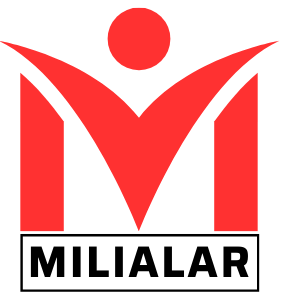Welcome to the world of health and fitness, where your journey towards a healthier, more balanced lifestyle begins. The Health and Fitness Lifebook is not just a planner or a tracking tool; it is a comprehensive guide that encompasses every aspect of wellness from physical fitness to mental health. This introductory section sets the stage for a deeper understanding of how a personalized Lifebook can transform your approach to health and fitness.
Understanding Health and Fitness
Achieving a balanced lifestyle is fundamental to wellness. It involves integrating various elements of health, including physical activity, nutrition, sleep, and stress management. This balance is crucial because it affects not only our physical health but also our mental and emotional well-being. In this discussion, we will explore how you can achieve and maintain this balance effectively, making it a cornerstone of your daily life.
Key Components of Fitness
Fitness is a multi-faceted concept that goes beyond mere physical activity. It includes several key components such as cardiovascular endurance, muscle strength, flexibility, and body composition. Each component contributes to overall fitness and health, and understanding these can help you tailor your fitness routine to better meet your personal health goals.
The Role of Nutrition in Fitness
Nutrition is a foundational element in the pursuit of peak fitness and overall health. It not only fuels your body for daily activities but also provides the essential nutrients necessary for growth, repair, and optimal functioning of the body. Understanding and implementing the right nutritional strategies can enhance your physical performance, improve recovery, and help maintain your energy levels throughout the day.
Macronutrients and Their Functions
Macronutrients include carbohydrates, proteins, and fats. Each serves a unique function in the body. Carbohydrates are the primary energy source, proteins are essential for tissue repair and growth, and fats provide essential fatty acids and help in absorbing vitamins know more on milialar. Understanding the roles and functions of these macronutrients can guide you in creating a balanced diet that supports your fitness goals.
Essential Vitamins and Minerals
While macronutrients provide the bulk of our dietary needs, vitamins and minerals play an equally important role in maintaining health and enhancing fitness. Elements like iron, calcium, and vitamins like D and B12 are vital for energy production, bone health, and immunity. This section will detail the significance of each vitamin and mineral, along with tips on how to include them in your diet.
Exercise for a Healthy Life
Exercise is an integral component of any comprehensive fitness plan, playing a crucial role in enhancing not only physical health but also mental and emotional well-being. Engaging in regular physical activity can lead to significant improvements in life quality, including increased longevity, better disease prevention, and higher levels of energy and happiness.
Cardiovascular Health
Cardiovascular exercises such as running, cycling, and swimming improve heart health and increase stamina. This subsection will delve into how regular cardiovascular training can benefit your overall health and contribute to your fitness goals.
Strength and Conditioning
Strength and conditioning exercises enhance muscle function, aid in weight management, and increase bone density. We will explore various strength training methods and how they can be integrated into your fitness regimen.
Flexibility and Mobility
Flexibility and mobility work, often overlooked, are crucial for overall fitness. Exercises like stretching, yoga, and Pilates improve joint mobility, reduce the risk of injuries, and enhance muscle coordination. This section will guide you through effective practices to enhance your flexibility and mobility.
Mental Wellness and Fitness
Mental wellness is essential for a holistic approach to fitness. Managing stress and maintaining mental balance are as important as physical training.
Stress Management Techniques
Effective stress management is vital for maintaining both mental and physical health. Techniques such as deep breathing, mindfulness, and adequate sleep can drastically reduce stress levels. Here, we will discuss various methods to manage stress and how to incorporate them into your daily routine.
The Benefits of Meditation and Mindfulness
Meditation and mindfulness can greatly enhance your mental wellness. These practices not only help in reducing stress but also improve concentration, mood, and overall emotional resilience. This section will provide practical tips on how to start a meditation practice and its benefits in daily life.
Tracking Progress with a Fitness Lifebook
A Health and Fitness Lifebook is an invaluable resource for anyone committed to improving their health and fitness. Serving as both a planner and a tracker, this tool helps you document your journey, monitor your progress, and stay motivated throughout your fitness endeavors. By maintaining a detailed record of your workouts, diet, and other health-related metrics, you can see tangible evidence of your growth and identify areas needing attention.
Setting Achievable Goals
Goal setting is a crucial step in any fitness journey. It helps in defining clear, measurable, and achievable targets. When setting goals, it’s important to make them specific, realistic, and aligned with your long-term aspirations. Begin by identifying what you want to achieve in your health and fitness lifebook—whether it’s losing weight, gaining muscle, improving endurance, or simply staying active. Break these broad objectives into smaller, manageable goals that you can accomplish daily or weekly, such as running a certain distance, attending a set number of fitness classes, or achieving a new personal best in weightlifting.
Monitoring Your Progress
Regular monitoring of your progress is essential for maintaining motivation and achieving your fitness goals. It allows you to see how far you have come and what adjustments need to be made to continue progressing. Use tools within your Health and Fitness Lifebook to record daily activities, diet, sleep, and even mood changes. This holistic view of your health will enable you to make connections between different aspects of your lifestyle and their effects on your overall fitness.
Adjusting Your Plan
As you evolve in your fitness journey, so too will your needs and goals. It’s natural for your body to adapt to a regular workout routine, and what once was challenging may become less so over time. When this happens, it’s time to adjust your plan. This might mean increasing the intensity of your workouts, adding new exercises to your routine, or maybe focusing on different aspects of fitness like flexibility or balance.
Fitness Apps and How They Help
In today’s digital age, technology plays a significant role in enhancing our fitness routines. Fitness apps are at the forefront, offering everything from workout guides to meal tracking. These apps help by providing structured plans, real-time feedback, and motivational tools that keep users engaged and committed to their fitness goals. Whether you are a beginner or an advanced athlete, there’s an app designed to cater to your specific needs, making it easier to stay on track and achieve your health and fitness goals.
Wearable Fitness Technology
Wearable technology has revolutionized the way we approach health and fitness. Devices such as fitness trackers, smartwatches, and heart rate monitors provide continuous health monitoring, from tracking steps and calories burned to monitoring heart rate and sleep patterns. This immediate access to health metrics empowers individuals to make informed decisions about their daily activities and workouts, ensuring that they maximize their efforts for optimal health benefits.
Overcoming Common Fitness Challenges
Hitting a plateau can be frustrating for anyone dedicated to their fitness journey. This common challenge occurs when progress seems to stall despite ongoing efforts. Overcoming a plateau involves varying your workout routine, increasing the intensity of your exercises, or perhaps revisiting your dietary choices. This section will provide strategies to help you overcome these plateaus and continue making progress towards your fitness goals.
Staying Motivated
Maintaining motivation is crucial for long-term fitness success. It’s easy to start a fitness routine with high enthusiasm, but the challenge is to keep that enthusiasm alive over time. This can be achieved through setting clear and achievable goals, celebrating small victories, and possibly integrating social aspects into your fitness routine. We’ll explore various motivational strategies that can help keep you excited about your fitness journey.
Community and Social Aspects of Fitness
Group fitness classes are a great way to enhance your workout routine while meeting new people and forming a community. These classes, ranging from yoga to spin to boot camps, provide a motivational atmosphere that can make exercising more enjoyable and effective. Additionally, the presence of a committed group can significantly boost your accountability and encourage you to push harder.
Building a Support Network
A strong support network is vital for sustained success in any fitness program. Whether it’s family, friends, or fellow gym-goers, having people who understand and support your fitness goals can make a significant difference. This section discusses how to actively build and engage with a support network that will encourage you through your fitness journey.
Conclusion
In conclusion, the journey through health and fitness is a multifaceted endeavor that benefits greatly from a structured approach like the Health and Fitness Lifebook. From understanding the essential components of fitness to incorporating modern technology and overcoming challenges, each aspect plays a crucial role in shaping your path to wellness. Remember, the goal of the Lifebook is not just to track what you do but to inspire continuous improvement and deeper understanding of your health and fitness journey.
FAQs
How often should I update my Fitness Lifebook?
It’s best to update your Lifebook regularly, such as weekly or monthly, to accurately track your progress and make timely adjustments to your fitness plan.
What is the best way to stay motivated when I feel like giving up?
Set smaller, achievable goals, find a workout buddy, and remind yourself of the reasons you started your fitness journey. Keeping your end goals in mind can reignite your motivation.
Are fitness apps necessary for tracking fitness progress?
While not necessary, fitness apps can provide valuable insights and convenience in tracking your daily activities and progress, making them a useful tool for many people.
How important is it to have a support network for fitness?
Very important. A support network can provide encouragement, advice, and accountability, all of which can significantly enhance your fitness journey.
What should I do if I hit a fitness plateau?
Try mixing up your routine, increasing the intensity of your workouts, and reviewing your diet. Sometimes, even taking a short break or focusing on different fitness goals can help break through a plateau.


